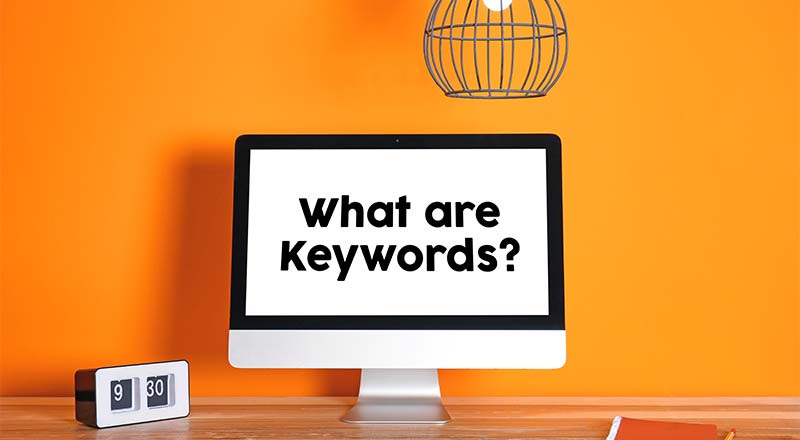January 21, 2021 - If you’ve looked up how to improve your Google ranking, how to market locally, or how to attract more leads to your business, you’ve probably seen one concept come up time and time again… keywords. But what exactly is a keyword anyway? Today we’re going back to basics to dissect the meaning of keywords in marketing and how they impact your insurance marketing efforts.
What are Keywords?
Keywords are words and phrases that succinctly describe the topic of a piece of content. They are also the terms that web users plug into search engines to find information (better known as search queries in this context). For example, if you were to search for fiddle leaf fig care, the results from your search would most likely include the term “fiddle leaf fig care”. The relationship between keywords and content helps web users find relevant information that best suits their request.
Why are Keywords Important?
In search engine optimization, or SEO, the goal is to get your webpage in front of your ideal audience. By strategically placing keywords in digital content, marketers can help their webpage rank for relevant search queries that use similar phrases, thus earning more web traffic. And more web traffic means more potential customers!
In pay-per-click advertising, marketers bid on keywords so their advertisement will populate when a web user enters a related search query. While the method is a bit different than SEO, the goal is the same: you want to earn more traffic!
Keywords for Insurance Marketing Strategies
Now, not all keywords are created equal. As an insurance agent, you’ll want to use locally targeted keywords to help people in your community find your business. You can add these keywords to your webpage, Google Business Profile page, and other places your agency can be found online.
If you’re an insurance agent in Boston, Massachusetts, your keyword phrase might be “[Name of Carrier] in Boston, MS” or “best auto insurance in Boston”. When deciding on a primary keyword, consider how you would search for insurance. It’s likely your potential customers are searching in the same way!
Stay away from singular keywords like “insurance” or the name of your carrier. There are probably thousands, if not millions, of webpages to compete against for these kinds of general keywords. Long-tail keywords are phrases that help web users zero-in on specific content. For example, instead of searching for “shirt”, you may search for “white linen button down shirt for women”. The results from these searches will be very different and the latter will be more likely to produce what you’re looking for! Similarly, when choosing a keyword, you’ll want to develop language that best matches the searches you want your business to rank for.
Keywords in SEO
Which webpages rank for search queries isn’t determined by a wizard behind a curtain and you can’t magically jump to the top of Google. In SEO, increasing your search engine ranking takes hard work, patience, and strategy. It can take months, or longer, for your webpage to begin ranking for your chosen keyword.
Sometimes, you may realize that chosen keyword phrases isn’t yielding the kind of results you want. But don’t worry, the great thing about marketing is that nothing is stagnant. You have the power to conduct more detailed keyword research and replace your old, lazy keyword with a new phrase.
Melon Local Specializes in Insurance Marketing Strategies
At Melon Local, we work exclusively with insurance agencies to help them generate quality leads from digital marketing strategies that work for their industry. To learn how we can help you develop a well-rounded marketing plan, reach out to our team for a free demo!
